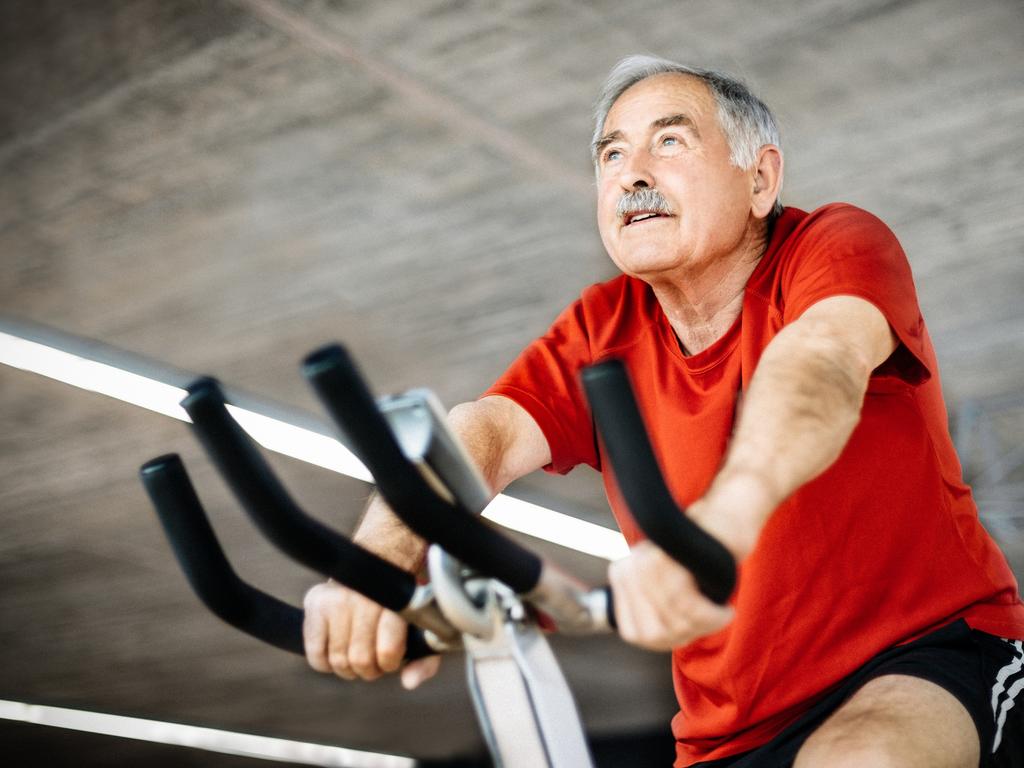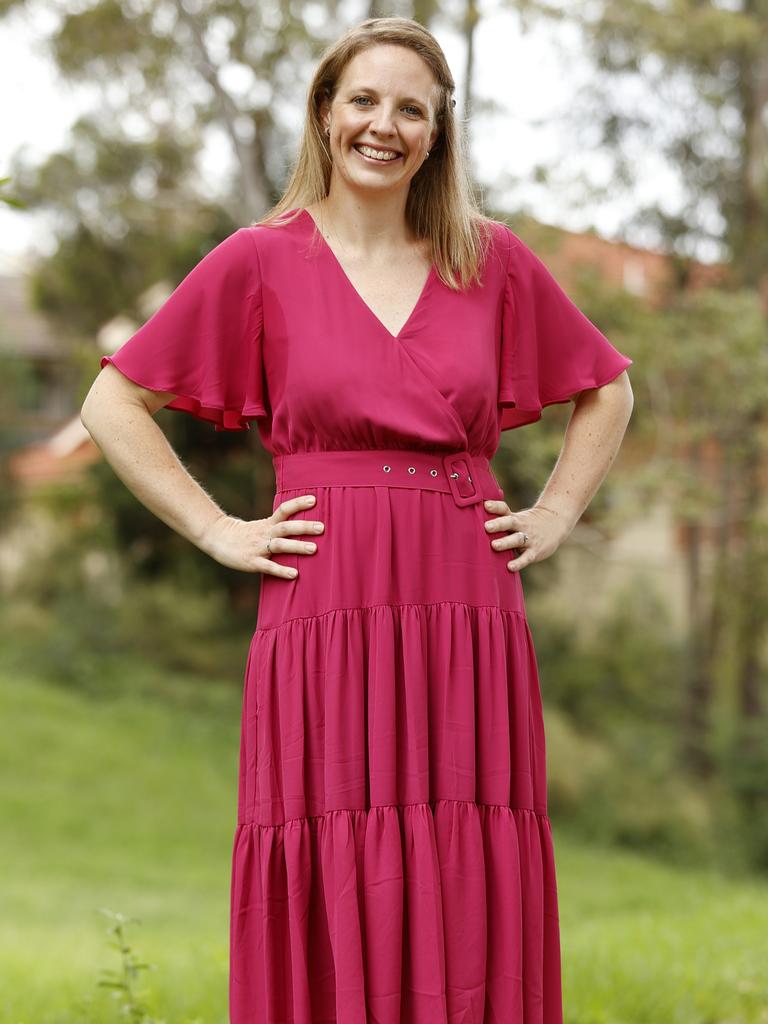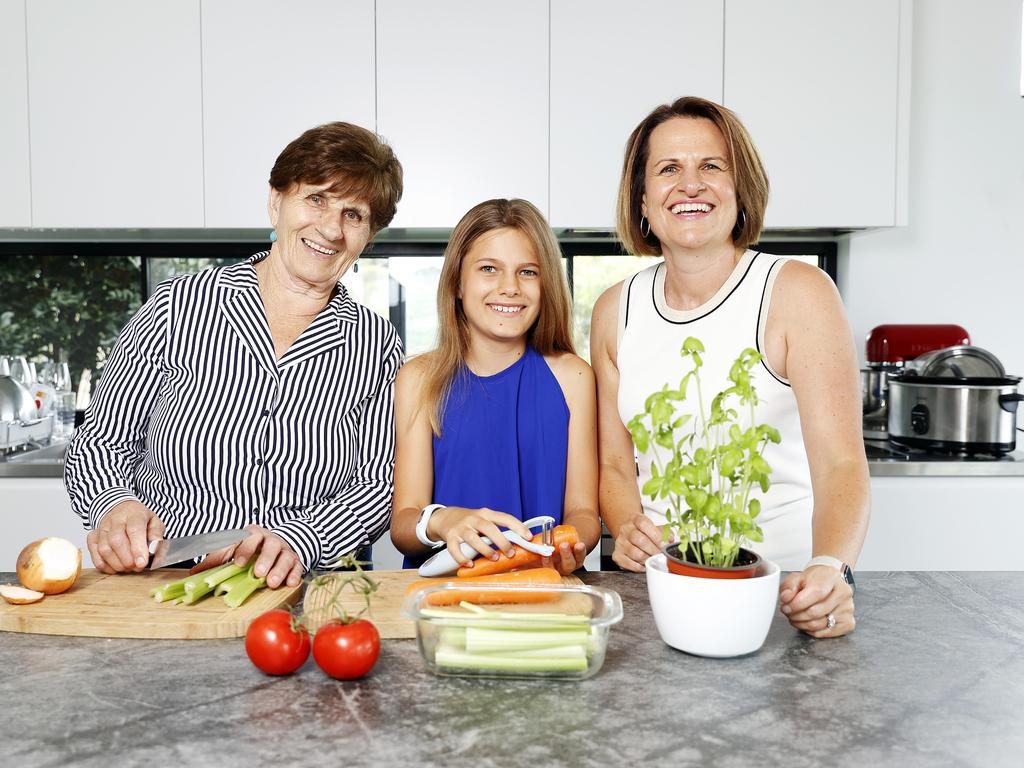Lose weight without going on a diet and having to exercise
Diet and exercise don’t necessarily equal weight loss. New research sheds light on some simple ways you can shed kilos. SEE THE FULL LIST.
Lifestyle
Don't miss out on the headlines from Lifestyle. Followed categories will be added to My News.
For years we have been told weight loss comes down to two things — diet and exercise.
But that is not necessarily true.
New research shows carbohydrates and fat are not the evil they are made out to be and you don’t need to do lots of exercise.
The real reason we are caking on the kilos is because we’re eating more.
Medical correspondent Sue Dunlevy outlines some simple tweaks to make to fast track your weight loss quest.
PORTION SIZE
Portion sizes of common foods have grown significantly 1938.
The number of foods we have access to has also increased from 600 to 800 in 1970 to more than 30,000 today.
Dietitian Rosemary Stanton said this was a key factor in sky rocketing obesity rates.
Australian Bureau of Statistics (ABS) records show the amount of potatoes each of us consumed leapt from 41.1 kilos a year in 1938-39 to 68.2 kilos in 1996-97. Rice consumption surged from 1.8 kilos a year to 7.3 kilos, in the same period, while soft drink consumption nearly tripled from 47.3 litres a year in 1968 to 114.4 litres in 1996-97.
More recent ABS data from 2019-2020 is not comparable because it does not include food purchases from fast food outlets, cafes and restaurants, which now make up a large portion of food consumption.
“A 750ml bottle of soft drink in the 1950s was enough for our family of five and served only for birthday parties. Now it’s a ‘single serve’,” said Dr Stanton.
Tea and coffee once served in cups holding 150ml are now served in mugs holding 250 to 300ml.

The most recent research available from The George Institute found the size of a pizza portion increased by 66 per cent and contained 570 more kilojoules in 2011-12 compared to 1995.
The size of a portion of cake also rose and contained an extra 950 kilojoules in 2011-12 compared to 1995.
The Institute’s Professor Jason Wu said supermarkets and restaurants also used value pricing to drive up food consumption.
“You can buy a small bag of chips for $1, but a bigger packet chips is $1.60 so it looks like you’re getting a better deal but you end up eating more,” Prof. Wu said.
The government does not regulate what food companies can list as a portion size and the University Newcastle’s Irene Munro found food companies deliberately confused people.
For example, the serve size on a 60 gram Mars Bar is listed as 60 gram but on the two-pack Mars Bar, where the bars are 40 gram each, the serve size changes to 40 grams.
“There is concern that the larger food serves are encouraging people to eat more and that this is contributing to the current obesity epidemic,” her study found.
PLATE SIZES
There has been a notable jump in plate sizes over the decades.
And Deakin University research found that doubling a plate size led to an average 44 per cent increase in food consumption.
Smaller plates led to a 20 to 25 per cent reduction in the amount of food consumed.
CALORIE INTAKE
The average adult eats about 250 to 300 more calories a day than in the 1970s, according to researcher Dr Kevin Hall from the US National Institute of Diabetes and Digestive and Kidney Diseases.
CARBS AND FAT ARE OK
A new Australian study has revealed women who eat carbs and saturated fat can avoid heart disease and diabetes.
The Australian Longitudinal Study on Women’s Health found women getting between 41 and 44 per cent of their energy from carbs had a lower risk of high blood pressure, type 2 diabetes and obesity
Quality carbohydrate foods such as vegetables and whole grains are beneficial for heart health, whereas white bread, biscuits, cakes, and pastries can increase health risks.
Sydney University research found that mice fed a high-carbohydrate, low-protein diet had a longer lifespan and better cardiometabolic health – despite being overweight.
QUALITY FOOD COUNTS
The theory that to lose weight you must exercise off more calories than you consume is wrong.
Instead we are getting fat because the bad carbohydrates in our diets establish an environment that fosters the accumulation of excess fat
The research, by 16 influential academics including some from Harvard University, found these bad carbohydrates increased insulin secretion, which turned calories into fat, making people hungry and decreasing the calories they burned.
CATCH WITH LOSING WEIGHT
Losing weight has a perverse side effect – it means your body burns fewer calories making it harder to keep losing weight.
Dr Hall found the number of calories that people burn dropped by between 10 and 15 per day for every half a kilo they lose.
WHO YOU EAT WITH MATTERS
They say you are what you eat but now researchers have found who you eat with could also be making you fat.
A Southern Illinois University study found people ate larger amounts of food when they ate their meal in the company of an overweight person.

NOT TOO MUCH EXERCISE
High levels of exercise are not needed to keep fit and too much exercise might make it harder to lose weight because it makes you hungry.
You only need to take 7000 steps a day — not the fabled 10,000 strides — to lower your risk of dying by 50-70 per cent, a University of Massachusetts study found.
And if two people did the same number of steps, the person doing them at a low intensity had no greater risk of dying than the person doing them at moderate intensity.
Just 11 minutes of burpees, jump squats, running in place and walking in place two to three times a week is enough to improve your aerobic endurance, according to a Mayo Clinic study.
Doing a high intensity workout once every three weeks may be all that is needed to build strength, Professor Peter Herbert from the Centre for Health and Ageing at the University of Wales found.
WHEN YOUR EXERCISE MATTERS
Delaying your evening walk until an hour after you have finished eating can be beneficial.
Australian Catholic University’s Evelyn Parr found your levels of blood glucose reach a peak at that time, meaning your muscles balance out your insulin levels.
EXERCISE CAUTION
Physical activity may make it harder to lose weight.
This is because our bodies compensate for some of the calories we expend during physical activity and we unconsciously move and fidget around 25 per cent less on days we work out. a Canadian study found.
VEGAN OR VEG IS NOT ALWAYS HEALTHIER
Going vegan or vegetarian may not actually be a healthier way to eat if you consume packaged foods which Bond University research found are high in refined vegetable oils and refined grains, salt and sugar.
HOW BELINDA LOST 42KG
It was shock at seeing her size in a photo that motivated assistant school principal Belinda Tuddenham to lose the weight she’d put on after having a baby.
The 42-year-old shed 41.7 kilos, dropping from 109 to 67.6 and reached the goal in the middle of Sydney’s second lockdown in 2021.
“The idea that I liked about Weight Watchers was that you actually get the skills and the healthy habits of creating a healthy lifestyle opposed to other programs where you buy the meals,” she said.
As a busy working mum her weight loss journey was not just about reducing portion sizes but learning to cook her own freezer friendly meals.


“I’ve got frozen foods that I’ve made before so I’m not relying on takeaway to get me through the week,” she said.
“When I make a salad, I don’t just make a salad for right there and then, I make salad for four days in a big container,” she said.
Losing the weight means she can be a “fun mum” chasing after her young daughter, going down the slippery slide, and choosing clothes she likes “not just because this is all there is in my size”, she said.
Her weight loss was not a diet but a forever change in lifestyle, she said.
ANCESTORS’ DIET THE MEDICINE MARIA NEEDED
A health scare prompted banker Maria Oliver to completely clear out her pantry in 2014 leaving nothing but olive oil, vinegar and whole foods.
She reverted to a version of the Mediterranean diet her mother Zora, 77, ate in Croatia during the Second World War.
During the war, food was scarce and the family ate largely vegetarian, growing almost everything they consumed on the family farm.
“They made everything, they milled their own flour, they made their own bread and pasta it was a Mediterranean diet, so a lot of fruit and veg, fish as well because they lived by the sea,” said Ms Oliver.

They made their own tomato-based sauces and pickled a lot of food and fermented cabbage was a staple dish being cabbage rolls stuffed with pork and rice.
Meat became more common when the family migrated to Australia and they cooked lamb on the spit for family feasts and turkey at Christmas.
Ms Oliver, who is a massive foodie and loves Middle Eastern cooking, said after returning to the Mediterranean diet of her ancestors her health has improved and she no longer needs her medication.
“Once you kind of start getting down this path and you start eating food as a healthy choice, it makes you feel that psychological benefit as well, you are what you eat, and you consume it and you know it’s doing good for you,” she said.
Ms Oliver said she does not take her daughter Adrijana, 10, to McDonalds. Their takeaway food of choice is Thai.
More Coverage
Originally published as Lose weight without going on a diet and having to exercise









